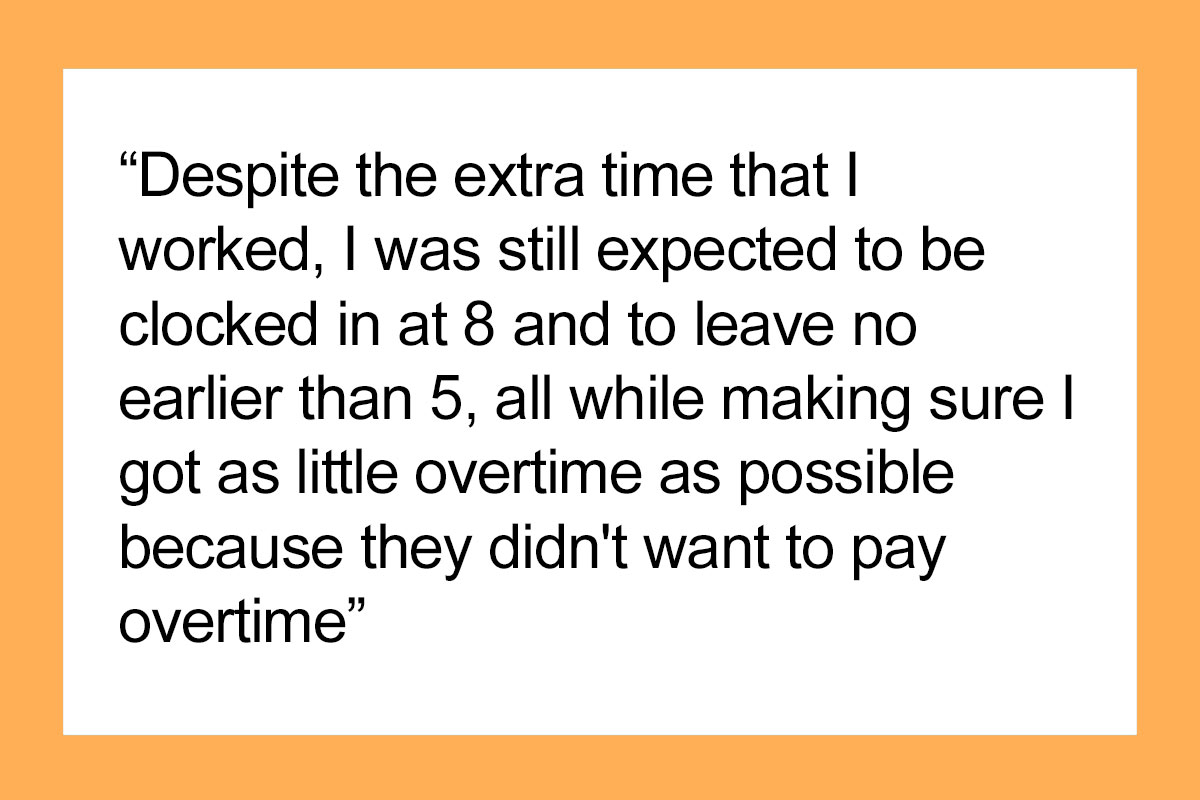
Guy Passes On Supervisor’s Exact Words To HR Regarding Time Reports, HR Takes It Literally
Among the various skills that humanity has developed over the centuries of its recent history, a special place, of course, is occupied by the ability to “read between the lines.” Centuries of hints, ploys and all sorts of diplomatic tricks have led us to subconsciously look for hidden meanings in almost any words. Especially when it comes to our own workplace.
The story we are about to tell you today falls into that category as well. The user u/civiljourney shared it on the Malicious Compliance community on Reddit a few days ago, and for good reason. Almost 7K upvotes and over 120 various comments are the best proof of that. So, now let’s figure it out together.
The author of the post once worked at a company where they had hourly work before they got salaried
Image credits: Marius Mann(not the actual photo)
One of the problems the employee also faced was that they had to work odd hours but the HR system documented almost every action
Image credits: u/civiljourney
So there always were lots of senseless HR reports on the author, which their supervisor also got sick and tired of
Image credits: Andrea Piacquadio (not the actual photo)
Image credits: u/civiljourney
One day the boss just threw it out to the author that they didn’t want to see these anymore
Image credits: Burst (not the actual photo)
Image credits: u/civiljourney
So the employee pretended they took it literally, went to the HR and told them the boss had ordered verbatim to stop sending reports on them
So, the Original Poster (OP) says that at one time they had a chance to work in a company where all the actions of employees were carefully documented by an automated HR system. Well, you know very well how this happens. The system knows when you come to work, when you leave, how much time you spend smoking, in the toilet and having a cup of coffee… in general, good old George Orwell would be delighted from the bottom of his heart.
The whole problem was that the author of the post was hourly but should have been salary, and moreover, the specifics of their work implied having to work odd hours. However, the employee, like all their colleagues, was expected to clock in at 8am, leave at no less than 5pm, and have their lunch at a pre-defined time, despite the very nature of their work meaning that the schedule should definitely be flexible.
The supervisor was pleased with the results of the OP’s work, but what annoyed the boss were the regular reports from HR that the subordinate had once again allegedly “violated the working regime.” The reports were as regular as they were absolutely useless at the same time. In general, one fine day, the supervisor, deleting the next report, angrily told the author: “I don’t want to see these anymore!”
And that’s where the original poster came into play. Obviously, a clever plan came into their head, so they swore to the boss that they would not see any more reports starting from that moment. Next, the employee went straight to the HR department and bluntly stated that their supervisor had ordered verbatim for HR to no longer send them any reports. No sooner said than done, the HR guys turned off the option to send reports on the OP – after all, they themselves were tired of this completely senseless exercise.
What follows is one solid happy ending. The higher-ups, as promised, never again received HR reports on the original poster’s work schedule, regularly praised them for good results, and in one of their personal conversations with a colleague many months later, that guy suggested that the boss did not mean exactly what the author did. To this, however, the OP had their own answer – wide-open surprised eyes and demonstrative confidence that they had done everything right. Well, this kind of policy has brought success to many people long before the original poster, and will bring it to many more people long after them…
Image credits: Mathias Reding (not the actual photo)
Yes, most likely, of course, the supervisor wanted the author of the post to somehow stick to the work schedule and not give reasons for making new HR reports – but since this was practically impossible, then the solution found by the resourceful employee should probably be recognized as close to ideal. In the end, folklore knows a lot of plots where the main character did about the same thing – and succeeded.
“Such situations often happen when two mutually exclusive things collide – corporate rules and work necessity,” says Nick Pruchkovsky, a QA engineer at SeaRates.com, with whom Bored Panda got in touch for a comment on this particular case. “Ideally, of course, it would be to change the rules to suit the changed reality, but often corporate processes are so bureaucratic that it is incredibly difficult and takes a lot of time.”
“Most likely, the hero of this story nevertheless violated several points of corporate rules, but technically it was done almost flawlessly. After all, I have not yet seen a job description item that would regulate the order: ‘I don’t want to see this again!’ All in all, it’s a little trick that didn’t really hurt anyone, but brought a lot more benefits, both for individual employees and for the company as a whole,” Nick reasons.
Interestingly, in the comments to the original post there were several people who work in HR departments, and they sincerely admitted that the need to generate similar reports is one part of their job, that they sometimes fall into despair over. “We know that they are totally unfair, stupid, worthless, demotivating, and a waste of time. Well played. I wouldn’t have checked either,” one of the commenters honestly wrote. The OP, in turn, admitted that such a plan would be doomed to failure if they had not had support from the HR guys, for which they have special respect and praise.
Be that as it may, any office is literally an inexhaustible source of stories about malicious compliance. For example, such as described in this post of ours – about a lab employee who, without further ado, complied with the shift manager as she ordered him to keep working after hours. And if you also have an interesting story in the same vein under the belt, please feel free to let us know it in the comments below.
People in the comments praised the author for such a smart and witty solution, at the same time claiming that the HR guys also did quite a good deed
Hourly: You're paid by the hour and also paid for your overtime. Salary: You get a bulk payment by-weekly or monthly and depending where you work or what you do, you are or you are not paid for your overtime. Usually an hourly is called a blue collar and the salaried person a white collar. Are you a technician, cook, hairdresser, warehouse person, etc. or are you an accountant, lawyer, supervisor, manager, etc. Hope this helps!
Load More Replies...You never know with managers. Since it wasn't brought up again I'm guessing the manager was being sneaky about it.
Underwhelming, overwhelming. Why can't we ever reach the exactly right level of whelm?
Load More Replies...Hourly: You're paid by the hour and also paid for your overtime. Salary: You get a bulk payment by-weekly or monthly and depending where you work or what you do, you are or you are not paid for your overtime. Usually an hourly is called a blue collar and the salaried person a white collar. Are you a technician, cook, hairdresser, warehouse person, etc. or are you an accountant, lawyer, supervisor, manager, etc. Hope this helps!
Load More Replies...You never know with managers. Since it wasn't brought up again I'm guessing the manager was being sneaky about it.
Underwhelming, overwhelming. Why can't we ever reach the exactly right level of whelm?
Load More Replies...
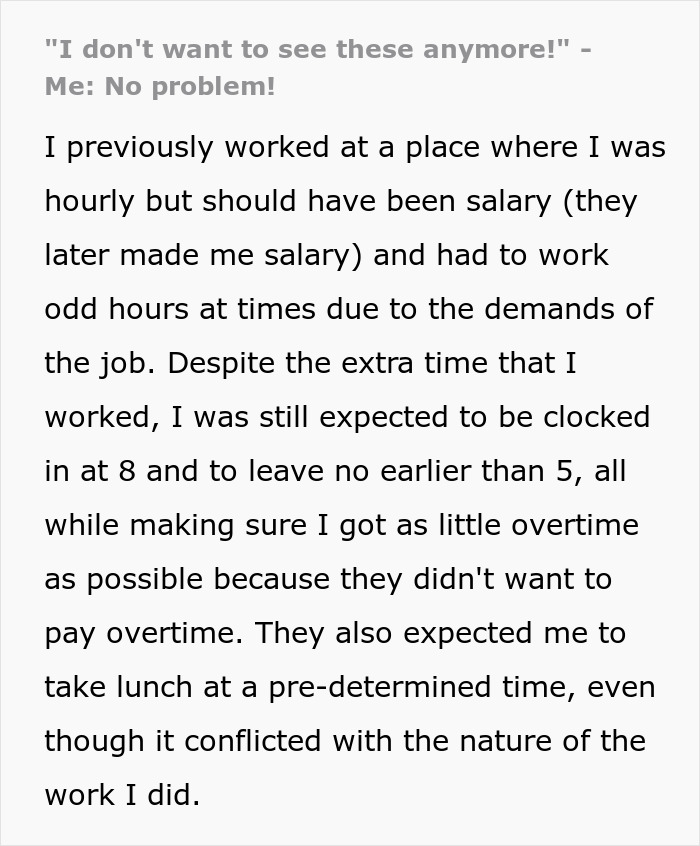
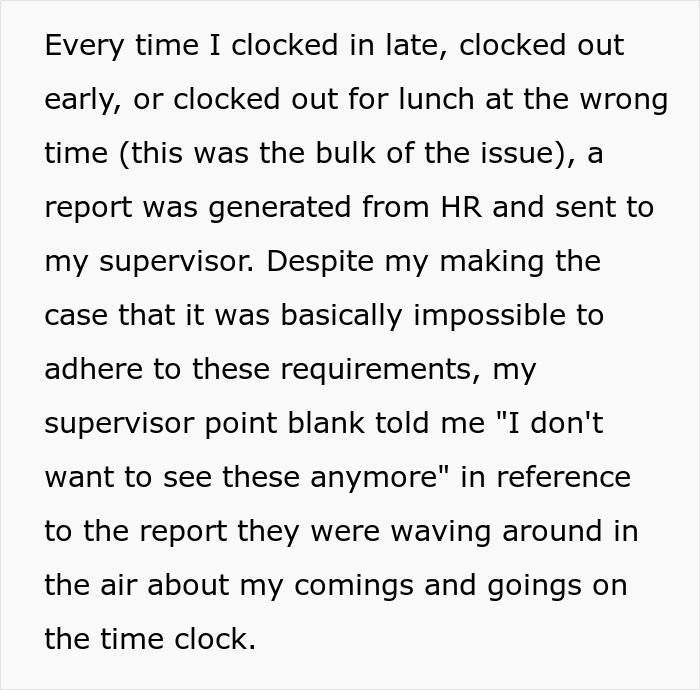


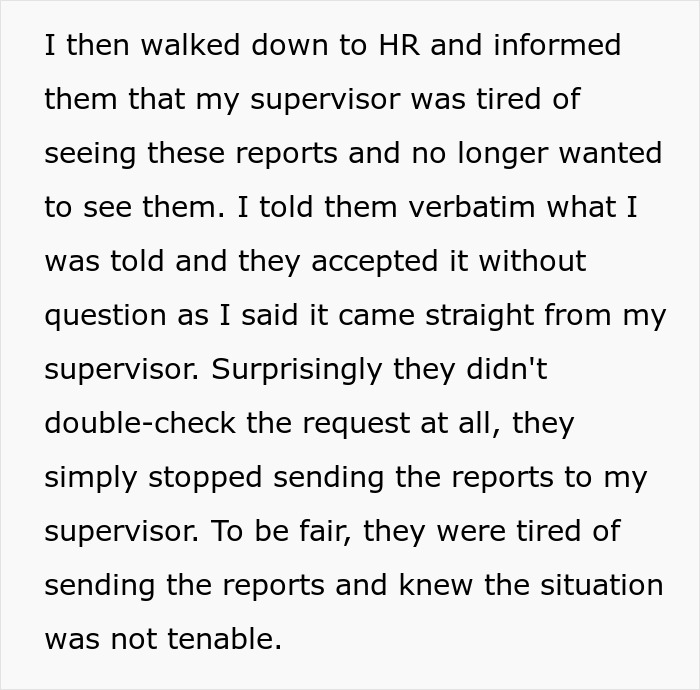


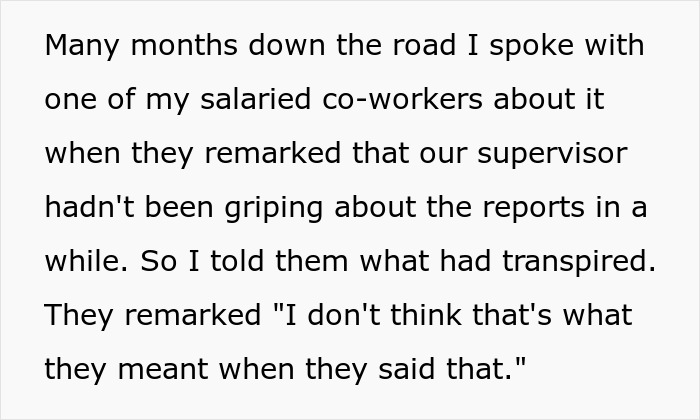
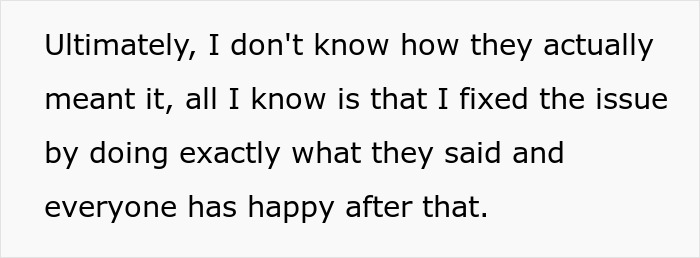


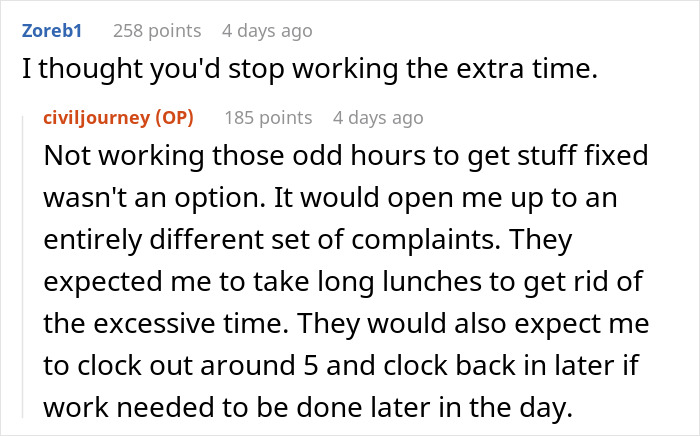


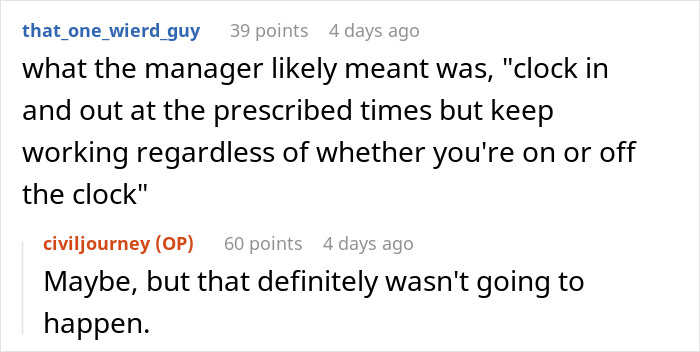
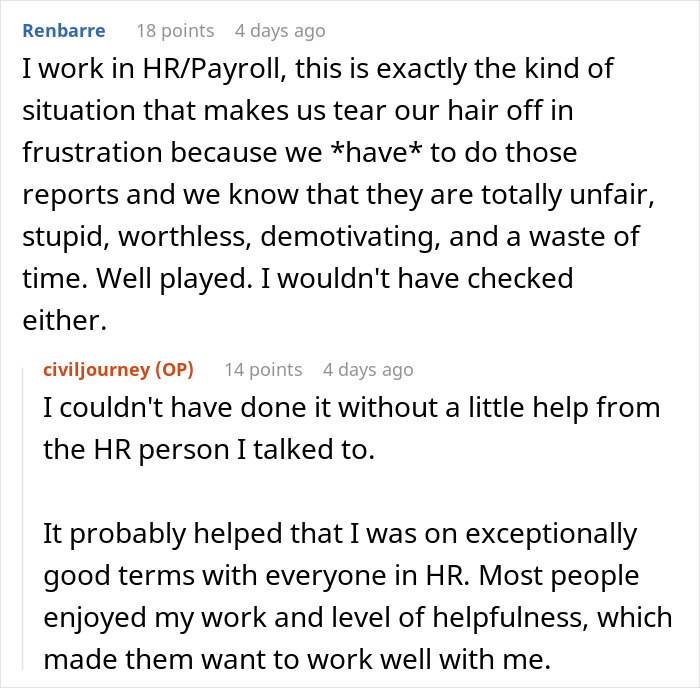
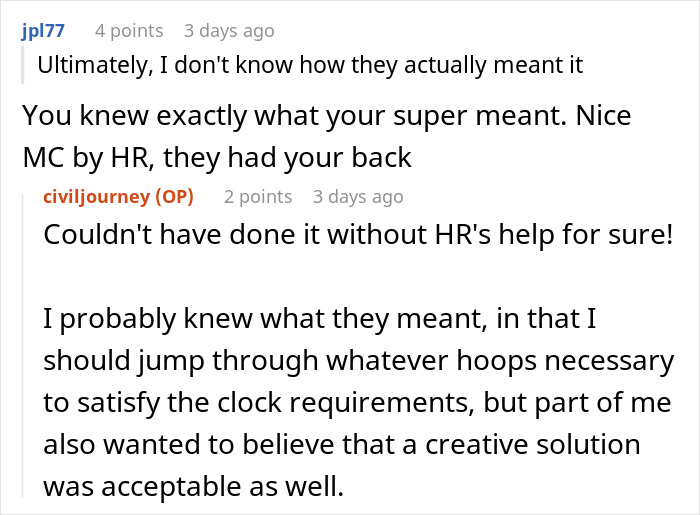

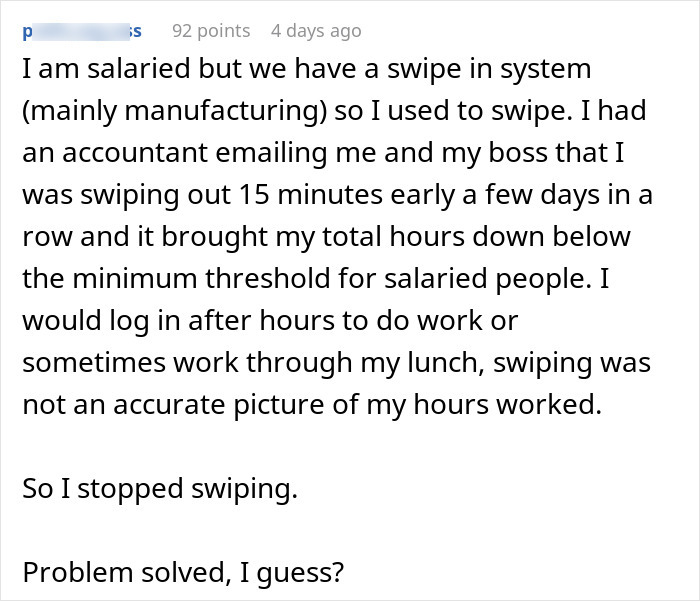
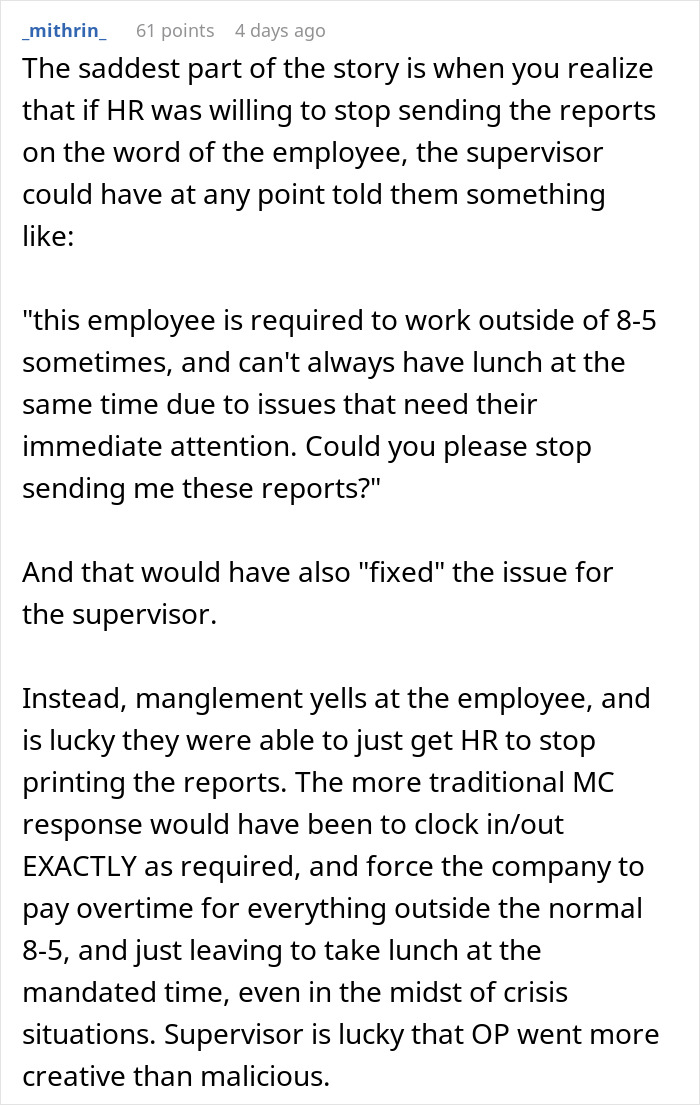




58
10